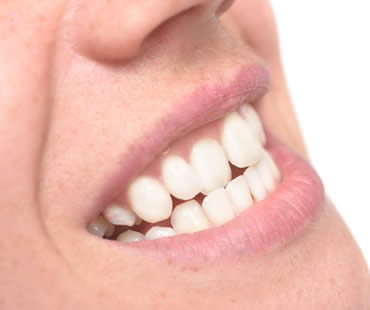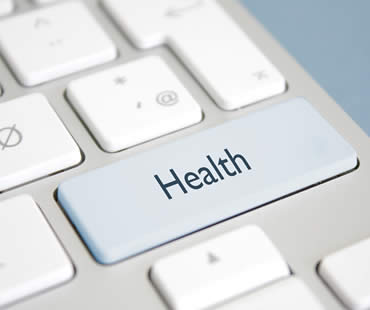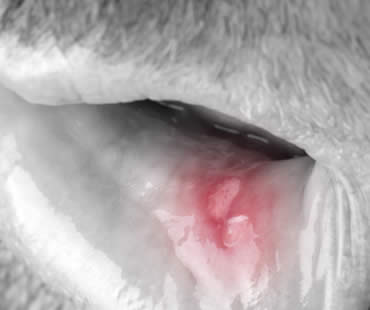
Whether you call it pop, soda, soft drink, or something else, these terms all refer to a sugary, carbonated drink popular all over the country. It is estimated that Americans consume over 13 billion gallons of soft drinks each year. These beverages can cause serious health problems, including negative effects on your oral health.
Soft drinks are one of the most significant reasons for tooth decay, and it impacts all age groups. From babies drinking it out of bottles to teenagers drinking it all day long to older adults sipping it in retirement homes, it is deteriorating tooth enamel and eroding gums of everyone who consumes it.
Why are soft drinks harmful?
The high sugar content in the drinks is the root cause of trouble, and the high acid content adds to the threat. The sugar combines with bacteria in your mouth to create an acid, which adds to the acid from the drink itself. Then this mixture attacks your teeth. Each time you take a drink of the carbonated beverage, an acid attack begins in your mouth. During this time, your tooth enamel is weakened and cavities are just waiting to form. You may think that the risk goes away by drinking sugar-free soft drinks. Although these are less harmful, they are still acidic and can lead to decay.
How can I avoid harming my teeth?
The ideal way to rule out risks from soft drinks is to cut them out of your diet completely. If you think you just can’t live without them, here are some suggestions:
- Substitute other drinks. Try drinks with less sugar, like 100% fruit juice and milk.
- Set a good example. Drink alternatives yourself and encourage your kids to do the same.
- Sip with straws. This helps keep the sugar from direct contact with your teeth.
- Rinse with water. After drinking a soda, rinse your mouth with water to reduce the amount of sugar and acid hanging onto your teeth and gums.
- Use fluoride toothpaste and mouth rinse. Using fluoride in your daily dental routine helps to reduce decay and strengthen enamel. Also ask your dentist about the possible need for professional fluoride treatments.
If you need a dentist in Meriden contact us today

Pregnancy is an exciting time in your life that brings about many changes to your body. Your oral health is affected as well. There are specific things to keep in mind during pregnancy related to your teeth, gums, and caring for them. Let’s talk about the things you should be thinking about for your mouth while expecting a baby.
Medications:
Tell your dentist about any prescription or over-the-counter medicines you’re taking, so that it’ll be easier to prescribe any drugs needed for you during dental treatment. Your dentist may also want to consult your doctor to discuss safe painkiller or antibiotic options for you during pregnancy.
X-Rays:
If you have a dental emergency or a problem that needs diagnosis, an X-ray may be required. Radiation exposure from dental X-rays is very low, but your dentist will cover you with a leaded apron to protect your abdomen. A leaded thyroid collar will also be used to protect your thyroid from radiation.
Gingivitis:
It’s not uncommon for some women to develop pregnancy gingivitis, which is a gum problem that occurs during the hormonal fluctuations of pregnancy. This condition is an inflammation of the gums that causes tenderness, swelling, and usually some bleeding during dental hygiene tasks. Your dentist may suggest more frequent cleanings during pregnancy to prevent gingivitis, because left untreated it can advance to more serious gum disease.
Pregnancy tumors:
Some pregnant women experience overgrowths of tissue called pregnancy tumors, which appear on the gums mostly during the second trimester. They are not cancerous and are usually located between your teeth. Dentists believe they are related to having too much plaque. Pregnancy tumors bleed easily and appear red and raw. Usually they go away after the baby’s birth, but some women prefer to have them removed before then. Discuss options with your dentist to see what’s best for you.
If you live in the Meriden area contact us today

Life can be full of frustrations, demands, deadlines, and inconveniences. For lots of people, stress is a way of life. The problem is that when you’re constantly stressed out, your health can pay the price. There are many health conditions that are caused or worsen due to high stress levels, but did you know that your mouth may be affected in the form of teeth grinding?
What is teeth grinding?
The condition of grinding or gnashing your teeth together is called bruxism, and often includes clenching your jaw. It commonly happens while sleeping, so that you may not even realize you’re doing it. Sometimes a sleeping partner hears it, or your dentist may recognize the signs of unusual wear on your teeth.
What does my stress level have to do with it?
Teeth grinding has been linked to stress and anxiety. Studies have shown that people who are stressed from daily life and don’t have adequate coping methods are more likely to grind their teeth. Experts say that both adults and children facing stress sometimes cope by grinding their teeth.
How does teeth grinding affect me?
Grinding your teeth has more negative effects than you might think. It often causes headaches, earaches, and sleep problems. It can cause chipped, loose, cracked, or sensitive teeth. Tooth enamel can suffer excessive wear, and gum tissue may be damaged. Teeth grinding also often causes a painful jaw disorder of the temporomadibular joint, commonly called TMJ.
What can I do about it?
Your dentist may recommend wearing an over-the-counter or custom mouthguard at night, to protect your teeth from further damage. Medications usually are not helpful, although a muscle relaxant before bed may help prevent jaw clenching. The ideal treatment is to try to reduce or eliminate stress that may be contributing to your teeth grinding. Relaxation therapy, stress management, corrective exercises, and counseling are some of the options that dentists suggest to help you remedy the problem.
If you need a dentist in Meriden contact us today

Many people find foods such as cheese, yogurt, and milk to be a very enjoyable part of their diet. Not only are some of these dairy items tasty and nutritious, did you know they can also help your teeth and gums? Studies show that consuming dairy products regularly can lower the occurrence of dental diseases. Let’s see which dairy items you should consider incorporating into your diet and why.
Reduce gum disease
The primary benefit of dairy to your dental health is lowering your risk of periodontal disease. Also known as gum disease, this condition affects roughly 75 percent of Americans at some level. It may be minor gingivitis or advanced periodontitis. If left untreated, gum disease can cause tooth loss, contribute to heart disease and stroke, and worsen diseases like diabetes and osteoporosis. Lactic acid is one of the key ingredients in many dairy items, and researchers believe that lactic acid is related to reducing gum disease.
Choose your dairy
Just because a food is identified as a dairy product, that doesn’t necessarily mean it’s completely healthy for you. Here are some tips to help you choose the ideal foods and beverages for your dental health:
- Look for low fat and non-fat options.
- Choose white milk instead of flavored milk, such as chocolate. The added sugars can lead to tooth decay.
- Consider natural and organic products when possible.
- Select unsweetened yogurt without sugar or artificial sweeteners. A good alternative is Greek yogurt which you can add fruit or honey to create an appetizing, healthy snack.
Enjoy additional benefits
Avoiding gum disease isn’t the only benefit of eating dairy. It helps build strong teeth and bones, and is rich in vitamins that are good for your overall health. So the next time you get hungry, try some cheese or a glass of milk because these foods will not only satisfy your hunger but also keep you smiling.
We treat patients from Meriden and the surrounding area

Your body is a little bit like a puzzle. It gives you clues to help you figure out what’s going on within your body. Did you know your mouth can give you hints about things that may be happening elsewhere in your body? Here’s a list of some of the signs your mouth can give you to pay attention to certain other aspects of your health.
Worn teeth and headache
If your teeth are showing extensive wear, you may be grinding your teeth. This would be even a stronger possibility if you’re also experiencing regular headaches, which can be caused by the muscle tension related to teeth grinding. This condition also indicates that you are likely under too much stress, and that you are unconsciously coping with it by grinding your teeth.
Gums covering teeth
If your gums begin to grow over your teeth and you are on medication, it may mean that your medication is at fault. Some medicines can cause your gums to overgrow, and the dosage needs to be adjusted.
Mouth sores
An open sore in your mouth that doesn’t go away in a couple of weeks can be an indicator of oral cancer. Numbness and unexplained bleeding in your mouth are other signs. Smokers and people over age 60 are at the most risk, but that doesn’t mean it doesn’t affect others too. See your dentist to make sure all is okay.
Cracked teeth
If your teeth begin to crack or wear extensively, you may have gastroesophogeal reflux disease (GERD). It’s a digestive disease that allows stomach acid to flow back into your food pipe and mouth. This acid can cause your teeth to deteriorate. Additional signs of GERD are acid reflux, heartburn, and dry mouth.
Unclean dentures
If you wear dentures, make sure you remove and clean them regularly. Inhaling food debris from your dentures that makes its way to your lungs can lead to pneumonia.
If you need a dentist in Meriden contact us today

The word cancer strikes fear and dismay in most people, and it’s no different when the diagnosis is oral cancer. Nearly 37,000 Americans are diagnosed with this disease each year and about 8,000 succumb to it. You should know the risk factors and symptoms so that you can either avoid it completely, or catch it early enough that you’ll have the best chance of recovery.
Who is at risk?
Oral cancer is not contagious, but there are some activities that put you at higher risk for the disease. Both smoked and smokeless tobacco are linked to oral cancer, and the more you use tobacco the greater your risk becomes. Excessive alcohol consumption also increases your risk, and paired with tobacco use your risk is even higher. Sun exposure heightens your chances of developing cancer of the lip.
What are the symptoms?
Oral cancer patients may experience any of these signs of the disease:
- A sore in the mouth or throat that bleeds often and doesn’t heal within two weeks
- A thick area or lump in the cheek
- Patches in your mouth or on your lips that are red, white, or a mixture of the two
- Pain or difficulty swallowing
- Difficulty wearing your dentures
- A sore throat
- Tongue or mouth numbness
- Difficulty chewing, or moving your jaw or tongue
- Earache
What should I do if I have symptoms?
If you notice any of these signs, visit your dentist right away to get screened for oral cancer. When diagnosed early, there is an 80 percent survival rate. Unfortunately many patients wait too long to see their dentist, and late-stage diagnosis is the reason for most oral cancer deaths.
Schedule your appointment at our Meriden dental office














